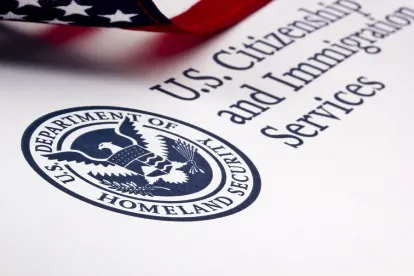On May 10, 2018, U.S. Citizenship and Immigration Services (USCIS) issued a policy memorandum changing the way the agency will calculate the accrual of unlawful presence for students (F-1), exchange visitors (J-1), and vocational students (M-1) in nonimmigrant status, and their dependents, while in the United States. The new guidance, which was issued in furtherance of President Trump’s executive order, Enhancing Public Safety in the Interior of the United States, is intended to target and reduce the number of visa overstays currently in the country. The policy will go into effect on August 9, 2018.
The accrual of unlawful presence is a significant issue because it may impact a person’s ability to apply for immigration benefits in the future. People subject to a 3-year, 10-year or permanent bar to admission as a result of accrued unlawful presence are generally not eligible to apply for a visa, admission, or an adjustment of status to permanent resident unless they are eligible for a waiver of inadmissibility or other form of relief.
Under the former policy, individuals who entered the United States for the duration of their studies and applicable training periods (Duration of Status or D/S) did not automatically begin to accrue unlawful presence if they overstayed or violated their nonimmigrant status. Instead, unlawful presence was triggered only upon a formal finding by USCIS that a nonimmigrant status violation had occurred or on an immigration judge’s ordering the person to be excluded, removed, or deported. The new policy provides a catchall date, whereby at the very least, unlawful presence will begin to accrue on August 9, 2018, for any F, J, or M nonimmigrant who overstays or violates status.
Unlawful presence is defined as presence in the United States after the expiration of the authorized period of stay. According to the new policy guidance, F, J, and M nonimmigrants and their dependents, admitted or otherwise authorized to be present in the United States, start accruing unlawful presence as outlined below.
F, J, or M Nonimmigrants Who Fail to Maintain Nonimmigrant Status Before August 9, 2018
An individual in F, J, or M nonimmigrant status who has failed to maintain his or her status before August 9, 2018, will start accruing unlawful presence based on that failure on August 9, 2018, unless he or she already started accruing unlawful presence on the earliest of the following:
-
the day after the U.S. Department of Homeland Security (DHS) denied the request for an immigration benefit, if DHS made a formal finding that the person had violated his or her nonimmigrant status while adjudicating a request for another immigration benefit;
-
the day after the person’s Form I-94 Arrival/Departure Record expired; or
-
the day after an immigration judge, or in certain cases, the Board of Immigration Appeals (BIA), ordered the person excluded, deported, or removed (whether or not the decision was appealed).
F, J, or M Nonimmigrants Who Fail to Maintain Nonimmigrant Status on or After August 9, 2018
An F, J, and M nonimmigrant begins accruing unlawful presence due to a failure to maintain his or her status on or after August 9, 2018, on the earliest of any of the following:
-
the day after the F, J, or M nonimmigrant no longer pursues the course of study or authorized activity, or the day after the person engages in an unauthorized activity;
-
the day after completing the course of study or program (including any authorized practical training plus any authorized grace period);
-
the day after the person’s Form I-94 Arrival/Departure Record expires; or
-
the day after an immigration judge or, in certain cases, the BIA, orders the person excluded, deported, or removed (whether or not the decision is appealed).
Individuals who have accrued more than 180 days of unlawful presence during a single stay and then depart the United States may be subject to a 3-year or 10-year bar to admission depending on how much unlawful presence they accrued before leaving the United States. Those who have accrued more than one year of unlawful presence based on their total number of entries into the United States, and who reenter or attempt to reenter without being admitted or paroled, may be deemed permanently inadmissible.
USCIS will be accepting comments on the new policy changes for a period of 30 days, ending on June 11, 2018.






 />i
/>i

